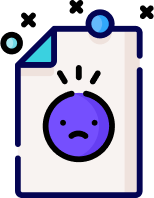

Mobile Development
By
learning mobile application development, you can become a versatile developer
who is capable of building mobile applications for different platforms such as
Android and iOS. This can open up many opportunities for you in the tech
industry and help you build a successful career.
Course Description
Module 1: Introduction to Mobile App
Development
1. Overview of Mobile App Development
· Introduction to mobile platforms (Android and iOS)
· Importance of mobile app development in the digital landscape
2. Understanding Mobile App Architecture
· Basics of client-server architecture
· Overview of native, hybrid, and cross-platform development
Module 2: Android App Development
1. Introduction to Android Development
· Setting up the Android development environment (Android Studio)
· Basics of Java/Kotlin programming for Android
2. User Interface Design for Android
· Layouts, views, and resource management
· User input and navigation patterns
3. Data Management in Android
· Working with SQLite databases
· Implementing content providers
4. Networking and APIs in Android
· Making network requests with Retrofit
· Consuming RESTful APIs
5. Advanced Android Concepts
· Fragments and multi-screen navigation
· Background processing and services
Module 3: iOS App Development
1. Introduction to iOS Development
· Setting up the iOS development environment (Xcode)
· Basics of Swift programming for iOS
2. User Interface Design for iOS
· Interface Builder and Auto Layout
· Handling user input and gestures
3. Data Management in iOS
· Working with Core Data
· Implementing data persistence
4. Networking and APIs in iOS
· Making network requests with URLSession
· Consuming RESTful APIs
5. Advanced iOS Concepts
· ViewControllers and navigation controllers
· Background processing and notifications
Module 4: Cross-Platform Development
1. Introduction to Cross-Platform Frameworks
· Overview of frameworks like React Native, Flutter, and Xamarin
· Pros and cons of cross-platform development
2. Building Cross-Platform Apps
· Developing a simple cross-platform app
· Code sharing and platform-specific considerations
Module 5: UI/UX Design for Mobile Apps
1. Principles of Mobile App Design
· Designing for small screens and touch interactions
· Creating user-friendly interfaces
2. Prototyping and User Testing
· Tools for prototyping (e.g., Sketch, Figma)
· Conducting user testing and gathering feedback
Module 6: App Deployment and
Distribution
1. App Deployment Process
· Submitting apps to Google Play and the App Store
· Managing app versions and updates
2. App Monetization Strategies
· Overview of in-app purchases, ads, and subscriptions
· Best practices for app pricing
Module 7: Mobile App Security
1. Security Best Practices
· Securing user data and communications
· Protecting against common vulnerabilities
2. User Authentication and Authorization
· Implementing secure user authentication
· Role-based access control
Module 8: Emerging Technologies and
Trends
1. Introduction to AR/VR in Mobile Apps
· Overview of augmented reality (AR) and virtual reality (VR)
· Integrating AR/VR features into mobile apps
2. Future Trends in Mobile App Development
· Exploring emerging technologies (e.g., 5G, AI)
· Staying updated with industry trends
Module 9: Final Project and Portfolio
1. Capstone Mobile App Project
· Design and implement a mobile application
· Showcase learned skills and technologies
2. Portfolio Development
· Guide students in creating a portfolio showcasing their mobile app projects and skills
Additional Considerations:
· Mentorship and Support
· Provide mentorship sessions and support for students throughout the course.
· Soft Skills and Professional Development
· Incorporate sessions on soft skills, teamwork, and effective communication.
· Career Guidance
· Offer career guidance, resume workshops, and interview preparations

0 Reviews
Laudantium iure aut
